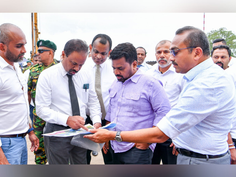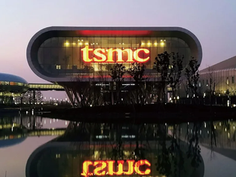Indonesia’s Halal Cuisine: Where Culture Meets Regulation
- Khoshnaw Rahmani
- Oct 24, 2025
- 4 min read
Khoshnaw Rahmani, Jadetimes Staff
K. Rahmani is a Jadetimes news reporter covering culture.

In Indonesia, halal cuisine is not merely a religious obligation — it is a national identity, a regulatory framework, and a strategic economic asset. As the world’s most populous Muslim-majority country, Indonesia has developed a halal food ecosystem that is both culturally rooted and institutionally rigorous. From the smoky satay stalls of Madura to the polished kitchens of Jakarta’s five-star hotels, halal food in Indonesia is shaped by centuries of tradition and a modern legal apparatus that governs everything from slaughterhouses to snack packaging.
This article explores the cultural foundations, legal infrastructure, economic ambitions, and global positioning of Indonesia’s halal food system — and how it compares to other Muslim-majority nations.
1. Cultural Foundations: Halal as a Way of Life
Halal (permissible) and haram (forbidden) are foundational concepts in Islamic dietary law. In Indonesia, these principles are not confined to religious observance — they are embedded in everyday life, shaping how food is prepared, shared, and celebrated.
Regional Expressions of Halal Cuisine
Indonesia’s culinary diversity is vast, but its halal integrity is consistent. Examples include:
Rendang (West Sumatra): A slow-cooked beef dish, rich in coconut and spices, often cited as one of the world’s best dishes.
Gudeg (Yogyakarta): A sweet jackfruit stew, traditionally served with halal-certified chicken and eggs.
Pempek (Palembang): Fish cakes made with halal flour and served with a tangy vinegar sauce.
Ayam Taliwang (Lombok): Grilled chicken marinated in chili and garlic, prepared in halal-certified kitchens.
These dishes reflect how halal principles coexist with regional identity, reinforcing the idea that halal is not restrictive — it is expressive.
2. Legal Infrastructure: From Faith to Framework
Indonesia’s halal system is governed by one of the most comprehensive legal frameworks in the Muslim world. The cornerstone is Law No. 33 of 2014 on Halal Product Assurance, which mandates that all products entering, circulating, and traded in Indonesia must be halal-certified.
Key Institutions and Mechanisms
BPJPH (Halal Product Assurance Agency): The central authority under the Ministry of Religious Affairs.
LPH (Halal Inspection Bodies): Independent agencies that conduct audits and inspections.
Fatwa Commission (MUI): Issues religious rulings on product permissibility.
Digital Traceability: QR codes and mobile apps allow consumers to verify halal status in real time.
This system ensures that halal certification is not symbolic — it is enforceable, transparent, and standardized.
3. Timeline of Halal Regulation in Indonesia
Year | Milestone |
2014 | Law No. 33 on Halal Product Assurance enacted |
2017 | BPJPH established as the central halal authority |
2019 | Voluntary certification begins for food and beverages |
2021 | Government Regulation No. 39 outlines implementation procedures |
2023 | Law No. 6 updates certification obligations and enforcement mechanisms |
2024 | Mandatory halal certification enforced for food and beverage sectors |
2025 | Full rollout of digital traceability and SME support programs |
4. Economic Strategy: Halal as a Growth Engine
Indonesia’s halal food sector is not just a matter of compliance — it is a pillar of national economic strategy. The government has identified halal products as a key driver of exports, tourism, and domestic industry.
Strategic Objectives
Halal Tourism: Promoting Indonesia as a destination for Muslim travelers seeking halal-certified experiences.
Export Expansion: Targeting halal-conscious markets in the Middle East, Southeast Asia, and Africa.
SME Integration: Supporting small and medium enterprises in obtaining certification and accessing global markets.
Global Leadership: Positioning Indonesia as a model for halal governance and innovation.
This strategy reflects a shift from halal as a religious obligation to halal as a competitive advantage.
5. Comparative Analysis: How Indonesia Stands Out
Indonesia’s halal system is often compared to those of other Muslim-majority countries. While each has its strengths, Indonesia’s model is notable for its legal enforceability and institutional integration.
Country | Certification Status | Oversight Body | Distinctive Feature |
Indonesia | Mandatory (phased) | BPJPH (state) | Legally binding, centralized, digital traceability |
Malaysia | Voluntary (some sectors) | JAKIM (religious) | Strong branding, global recognition |
Saudi Arabia | Mandatory (select sectors) | SFDA & religious bodies | Religious authority-led, less industrial oversight |
Turkey | Voluntary | Private and NGO-led | Market-driven, less centralized |
Pakistan | Growing, fragmented | Provincial bodies | Decentralized, uneven enforcement |
Indonesia’s system blends religious legitimacy with bureaucratic rigor — a rare combination that enhances both trust and scalability.
6. Challenges and Innovations
Despite its strengths, Indonesia’s halal system faces several challenges:
SME Compliance: Many small businesses struggle with the cost and complexity of certification.
Consumer Awareness: Not all consumers understand the certification process or its significance.
Global Harmonization: Aligning with international halal standards requires ongoing negotiation and diplomacy.
Innovations Underway
Subsidized Certification: Government programs to reduce costs for micro and small enterprises.
Public Education Campaigns: Raising awareness about halal standards and consumer rights.
Blockchain Traceability: Pilots underway to enhance transparency and prevent fraud.
Halal Auditor Training: Expanding the pool of qualified inspectors to meet growing demand.
These innovations aim to make halal assurance more inclusive, efficient, and globally competitive.
7. Broader Implications: Halal as Soft Power
Indonesia’s halal system is not just domestic policy — it is a form of soft power. By exporting halal-certified products and standards, Indonesia extends its cultural influence and builds trust with Muslim consumers worldwide.
Diplomatic Leverage: Halal diplomacy strengthens ties with OIC countries and emerging markets.
Cultural Branding: Halal cuisine becomes a vehicle for promoting Indonesian identity abroad.
Standard-Setting Role: Indonesia contributes to shaping global halal norms through multilateral forums.
This positions Indonesia not just as a halal producer, but as a halal thought leader.
Indonesia’s halal cuisine is a living synthesis of faith, flavor, and formal regulation. It reflects the country’s deep Islamic heritage, its culinary diversity, and its ambition to lead the global halal economy. With a robust legal framework, a vibrant food culture, and a forward-looking economic strategy, Indonesia is not just serving halal — it is defining what halal means in the 21st century.







































